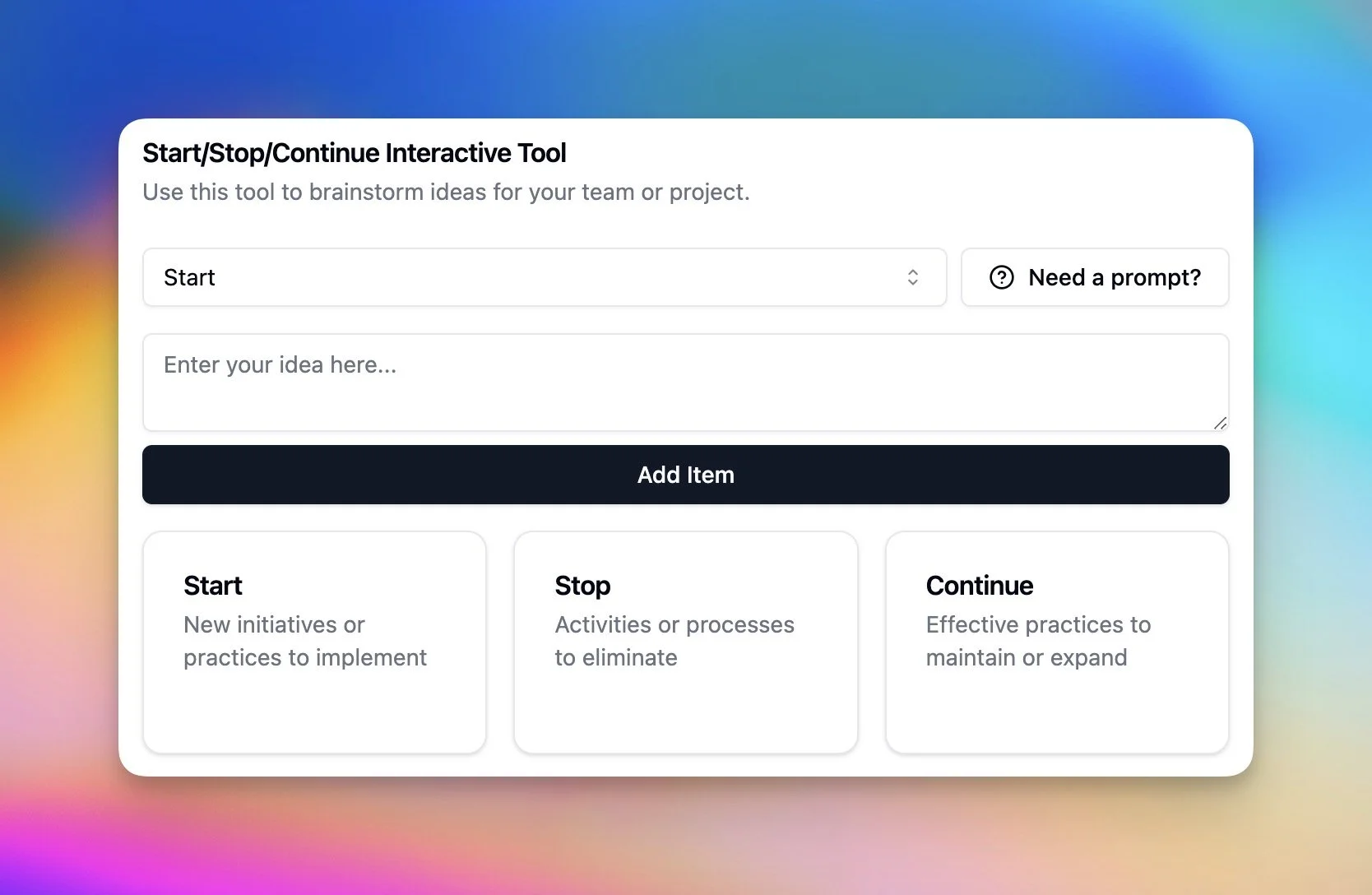Enhancing Team Performance with the Start/Stop/Continue Framework
On This Page
Hey fellow leader, Shep Bryan here.
I want to share a straightforward tool with you that's been particularly effective for me in improving team performance and driving meaningful change: the Start/Stop/Continue framework.
The Framework in Practice
Recently, I sat down with a group of colleagues and posed these questions:
Start
What new practices or strategies could we implement to enhance our productivity?
Where do we need to increase our focus or resources?
Stop
Which activities or processes might be hindering our progress?
What could we eliminate to streamline our workflows?
Continue
What's currently working well and contributing to our success?
Which practices should we maintain or potentially expand?
The responses were insightful. We identified several areas where we could make immediate improvements to refine our approach and drive results.
It's interesting how certain topics can resonate strongly with a group, often highlighting the most actionable opportunities.
The Value of This Framework
As leaders, it's crucial to stay attuned to what's effective, what's not, and what could potentially improve our team's performance. The Start/Stop/Continue framework offers a straightforward method to achieve this.
It's not about drastic overhauls. Instead, it focuses on making incremental, thoughtful adjustments over time.
This approach is key to fostering continuous improvement.
Adapting to Change
A key takeaway from this exercise is the importance of being open to change. It involves both letting go of practices that no longer serve us well and reinforcing those that do. This balanced approach helps maintain team agility and responsiveness to evolving needs.
Implementing the Framework
If you're considering trying this with your team, here are a few suggestions:
Consistency: Schedule these sessions regularly, perhaps quarterly or bi-annually.
Open dialogue: Create an environment where team members feel comfortable sharing their honest thoughts.
Follow-through: Act on the insights gained. Implementation is crucial for maintaining engagement.
Review progress: Revisit previous session outcomes to ensure accountability and demonstrate commitment to improvement.
Interactive Start/Stop/Continue Tool
Ready to put the Start/Stop/Continue framework into action?
Use this interactive tool to brainstorm ideas for your team or project. It's simple to use and you can download your results when you're done.
Here's how to use it:
1. Select a category (Start, Stop, or Continue).
2. If you need inspiration, click "Need a prompt?" for a thought-starter question.
3. Enter your ideas and add them to the board.
4. Review your ideas in each category.
5. Profit.
This tool is designed to help you quickly apply the Start/Stop/Continue framework to your own situation. Remember, the power of this approach lies in its simplicity and actionability. Start small, be specific, and focus on changes that you can implement relatively quickly. Happy brainstorming!
